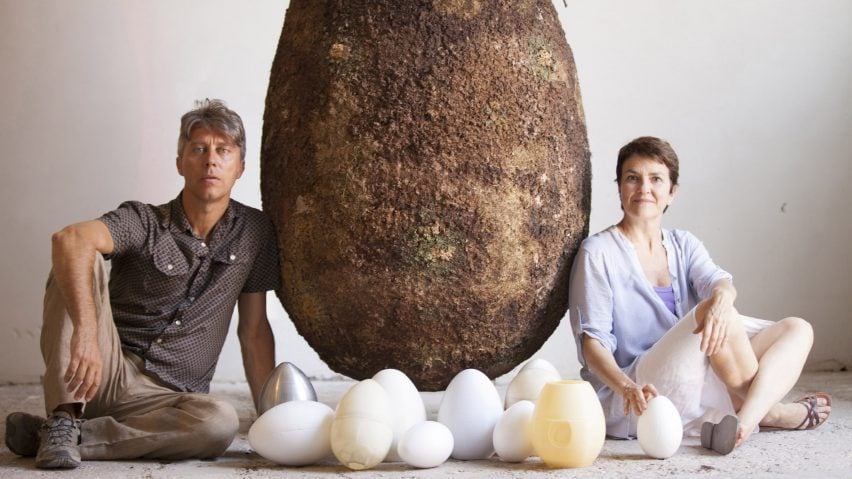
Five designs for a sustainable death
To celebrate Earth Day, we're looking at ways you can be sustainable beyond the grave. We've picked out five eco-friendly designs for the deceased, including an egg-shaped burial pod and a cremation urn made of sewage water.
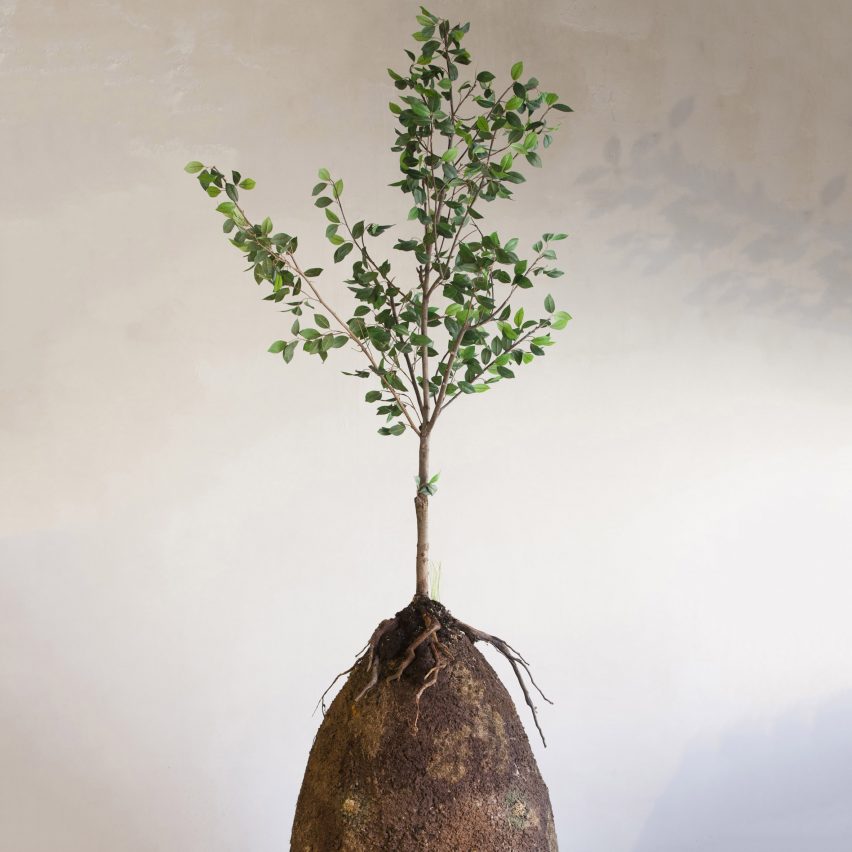
Capsula Mundi by Anna Citelli and Raoul Bretzel
Capsula Mundi is an egg-shaped pod, where the body of the deceased is placed in a foetal position inside a container made from biodegradable material before being buried in the earth.
A tree, chosen either by the deceased prior to their death, or by the family, is then planted above the burial site.
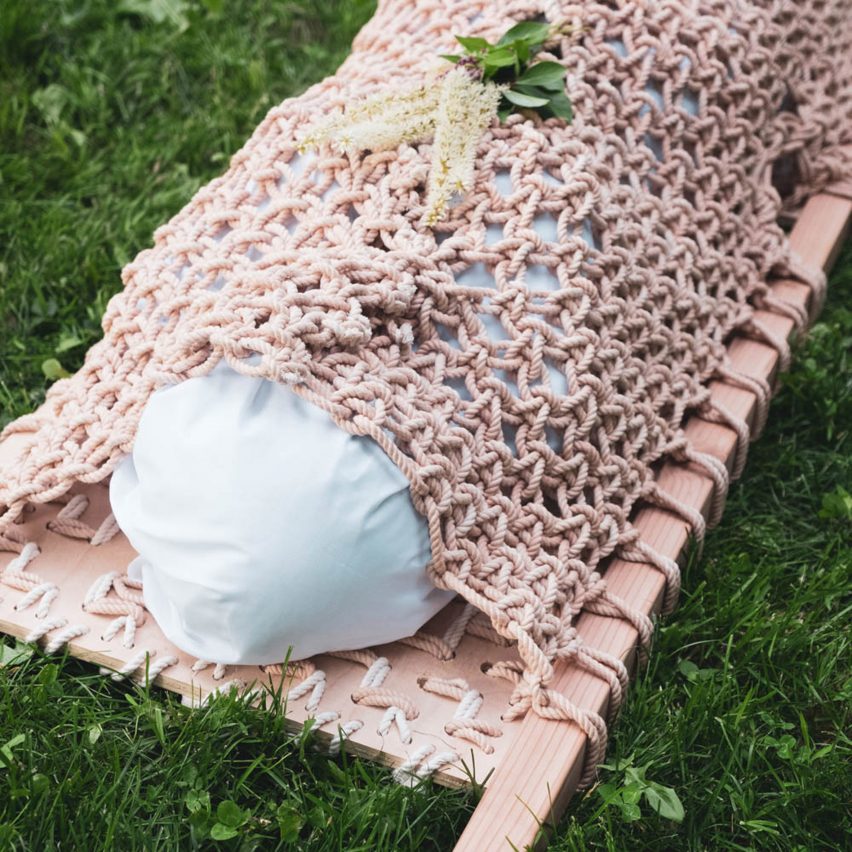
This eco-friendly coffin uses fungus to help biodegrade the body so that it decomposes quickly and fertilises the surrounding soil.
The body is wrapped in natural cotton and laid on a pine wood surface. It is secured with a woven netting of rope that has been laced with fungal spores, which multiply and speed up the body's decomposition.
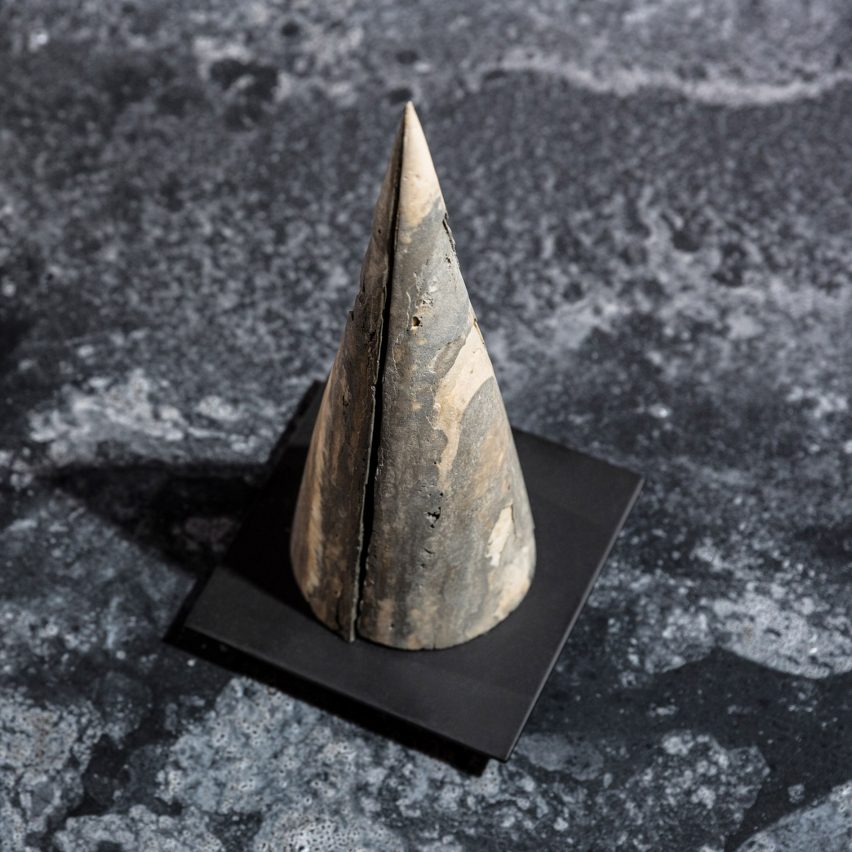
Mourn by Studio Nienke Hoogvliet
This sustainable cremation urn is made of polyhydroxyalkanoate, or PHA, a bioplastic that can be produced from bacteria found in sewage water.
The bioplastic is combined with cremation ashes to produce a cone-shaped vessel that biodegrades, meaning the ashes of the deceased are released gradually into nature.
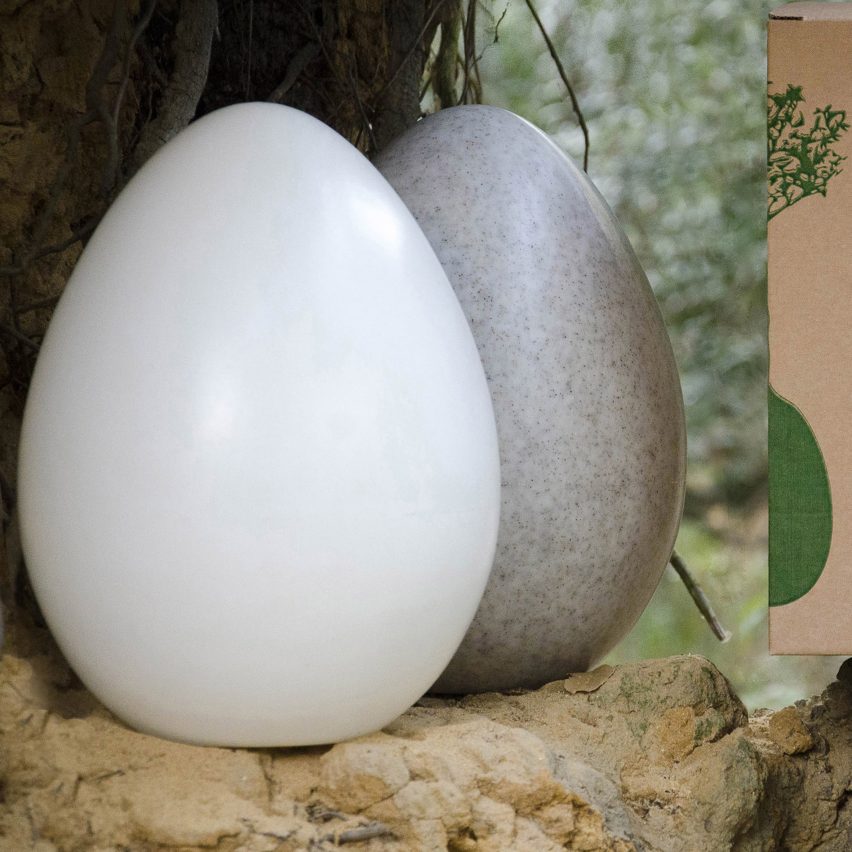
Capsula Mundi Urn by Anna Citelli and Raoul Bretzel
Similar to the Capsula Mundi burial pod, this urn is made of a biodegradeable material that is planted in the soil, with a tree planted on top of it.
The ashes are fed through a hole and secured with a cone-shaped screw-top. According to the designers, the time it takes for the urn to biodegrade ranges from a few months to a few years, depending on the soil conditions.
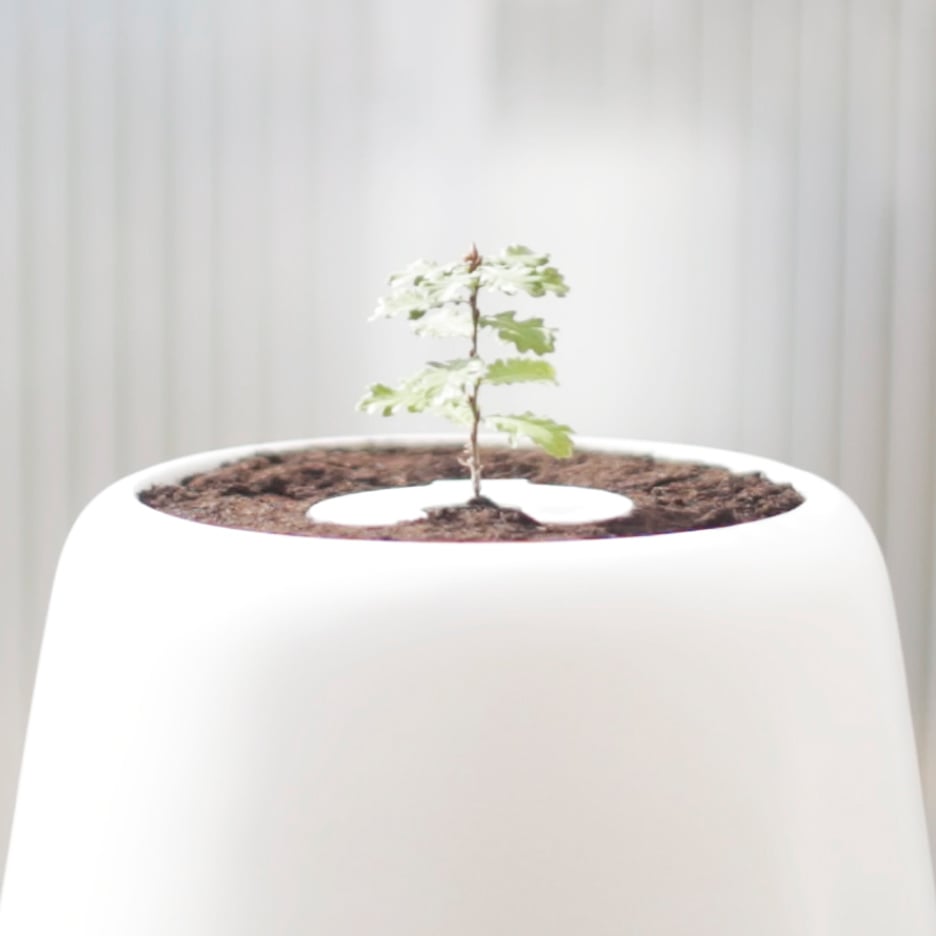
This smart incubator works together with Bios Urn, a biodegradable urn that stores cremated ashes. The incubator comes with a seed inside that grows into a tree, and the plant's growth is monitored via a smartphone app.
Described as the "first tree incubator designed for the afterlife", the product comes with an in-built self-watering system that is triggered by a sensor device attached to the surface of the soil.